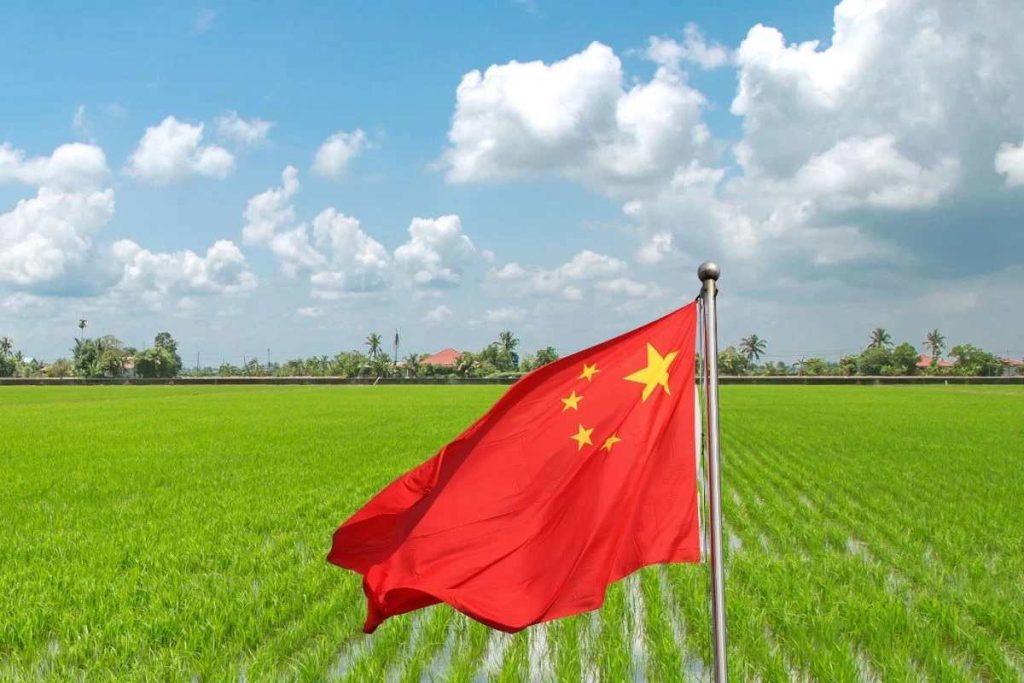Tags
China Promises a New Era for Humanity with a New Cereal Capable of Growing on 14 Billion Acres of Unusable Land.
by Brian Foster

In a groundbreaking achievement that could change the face of global agriculture, Chinese scientists have unveiled a new variety of stress-resistant rice that has the potential to thrive in the harshest conditions. This discovery, developed by the Chinese Academy of Sciences (CAS) and Shanghai Jiao Tong University, could be the solution to one of the most pressing global challenges: hunger. The new rice promises not only to increase agricultural yields but also to transform vast, previously unusable land into productive, arable space.
Boosting Yields by Regulating Plant Hormones
This innovative project, which might be best described as a post-Green Revolution genetic breakthrough, focuses on the manipulation of a plant hormone called gibberellin. Gibberellin plays a key role in plant growth, and by regulating it, the researchers have developed a rice strain that can withstand environmental stressors, such as soil salinity. According to the United Nations Food and Agriculture Organization (FAO), around 1.4 billion hectares of land—over 10% of the world’s total arable land—are affected by salinity. This breakthrough offers the promise of vastly increasing the amount of usable farmland.
A Solution for Alkaline Soils and High Temperatures
In addition to making rice more resilient to salt, the researchers have identified two genes, ATT1 and ATT2, that give rice plants resistance to alkalinity and heat. By tweaking the synthesis of gibberellin, they discovered that the ATT2 gene was particularly effective in regulating the hormone to optimal levels, enabling the plant to thrive under stress while increasing its yield. This precision could be key to maximizing food production, even as climate change makes growing conditions increasingly unpredictable.
Impressive Results Under Alkaline Conditions
The results of testing under alkaline conditions have been astounding. By enhancing the expression of the ATT2 gene, rice yields increased by an impressive 78 to 101% per plot compared to standard crops. These findings are a powerful indicator of how this innovation could play a pivotal role in securing global food safety as the world faces rapid population growth, diminishing agricultural land, and the escalating effects of climate change.
Turning Marginal Land Into Productive Farmland
The research team is now focusing on the potential of marginal lands—areas that have previously been too inhospitable for agriculture due to harsh conditions such as high salt or alkalinity. By applying the ATT2 gene technology, these lands could be transformed into productive agricultural zones, helping to ease the pressure on traditional farming methods that often deplete the soil. This approach also presents an opportunity to reduce reliance on intensive agricultural practices that are harming the environment.
Enhancing Stress Tolerance and Boosting Production
In addition to genetic adjustments, the team has demonstrated that adding gibberellic acid—a naturally occurring plant hormone—can further enhance stress tolerance in rice, making it more resilient to environmental challenges. This could help maintain high yields even in difficult conditions, offering a safeguard against unpredictable weather patterns and other agricultural challenges.
The Global Impact of Rice Farming
Rice, a crop cultivated for over 7,000 years, remains a staple for nearly half of the world’s population. It is particularly important in Asia, which accounts for around 90% of global production. As of 2021, global rice production reached 787.3 million tons, with China and India together contributing more than half of this total. While rice farming is mostly dependent on irrigation systems, this new variety, with its resilience to salt, heat, and poor soils, could revolutionize farming in areas that are currently unproductive.
A New Era in Agriculture
This technological breakthrough is more than just a scientific achievement; it’s a potential game-changer for global food security. As the world continues to face challenges related to climate change, land degradation, and food shortages, innovations like this one provide hope for a more sustainable and productive future. The development of rice that can thrive on previously barren lands offers a new path forward, one that could change the lives of millions and help eradicate hunger across the globe.
With this exciting discovery, China is positioning itself as a leader in sustainable agriculture, and the world is watching closely to see how this technology will reshape the future of food production.
https://glassalmanac.com/china-promises-a-new-era-for-humanity-with-a-new-cereal-capable-of-growing-on-14-billion-acres-of-unusable-land/Published Date: June 9, 2025






